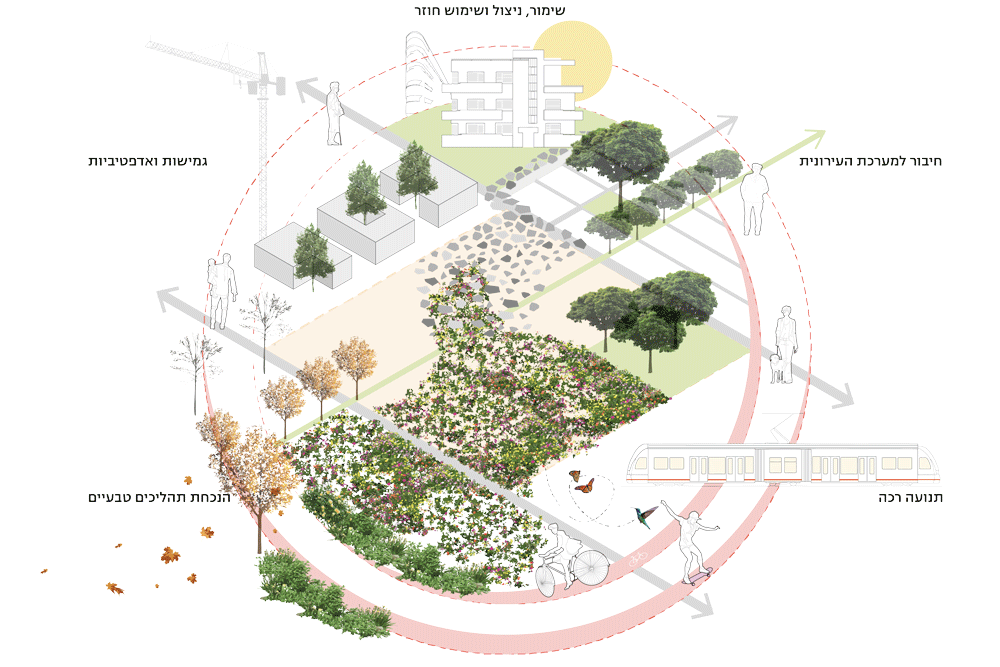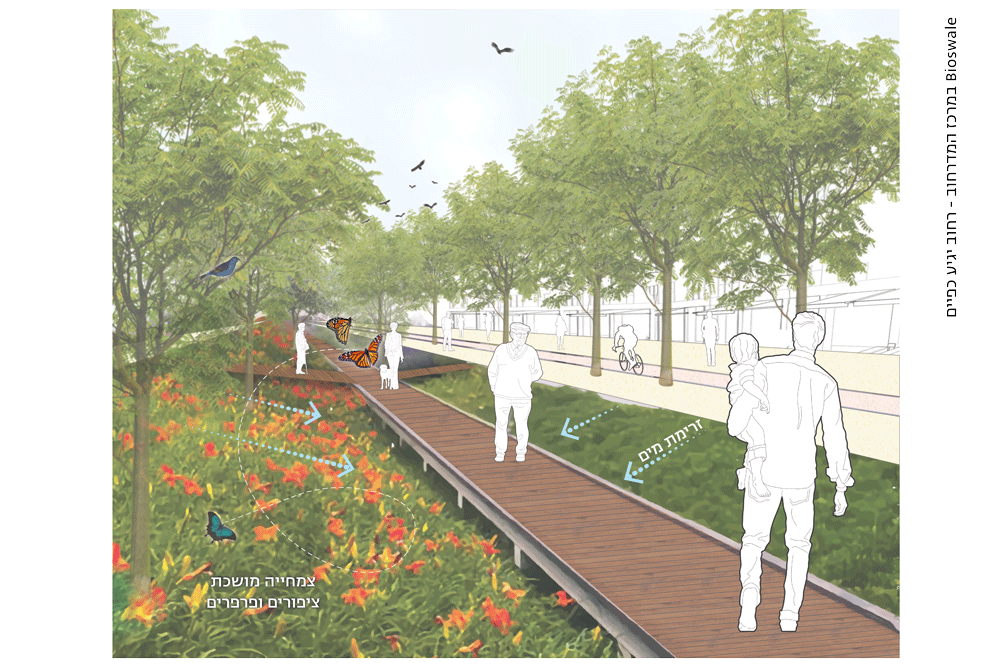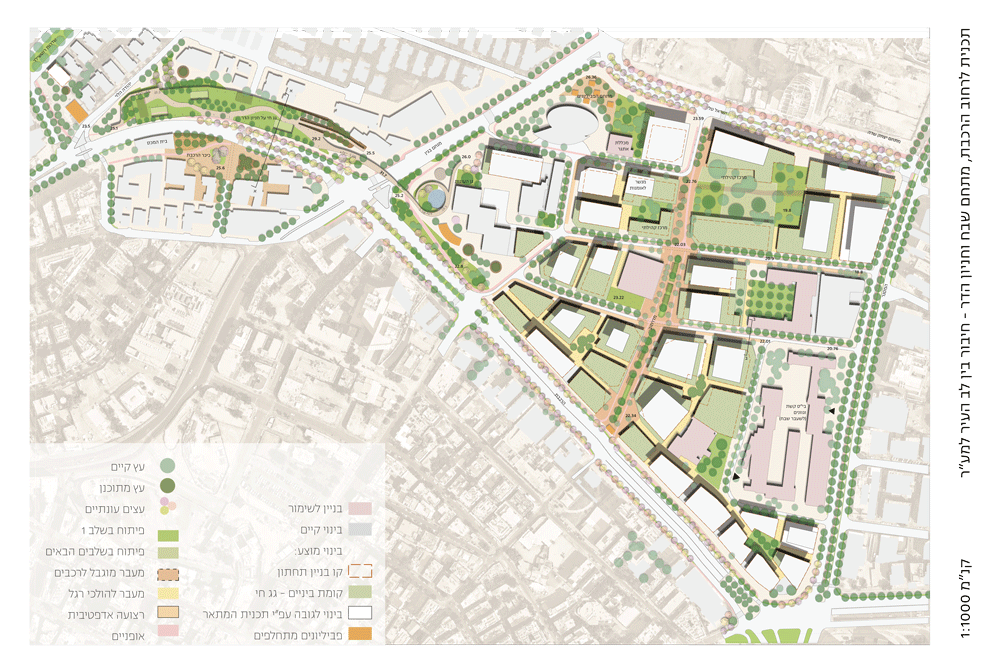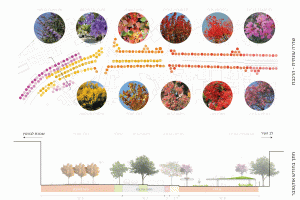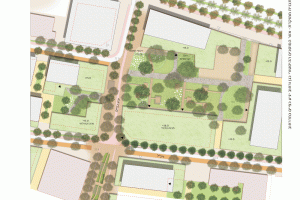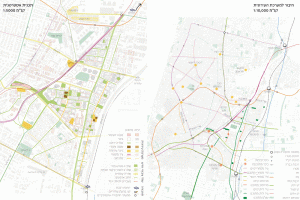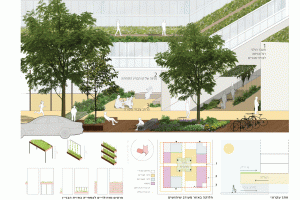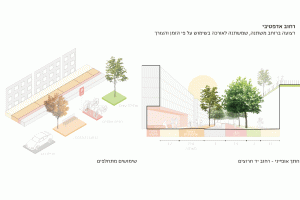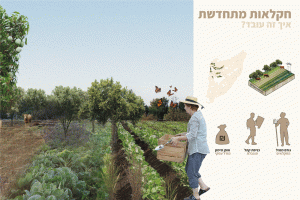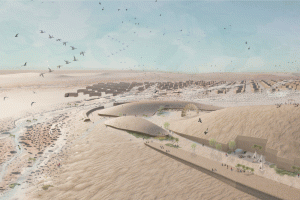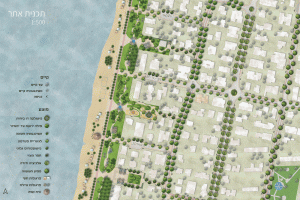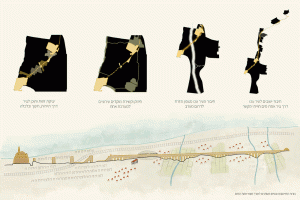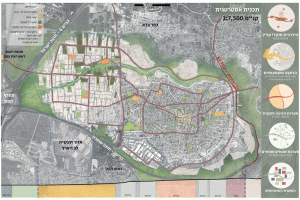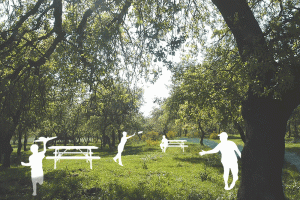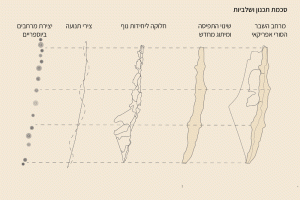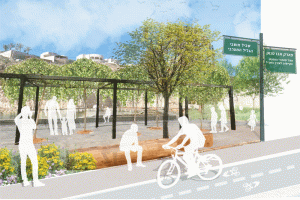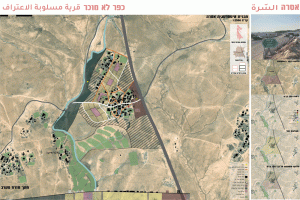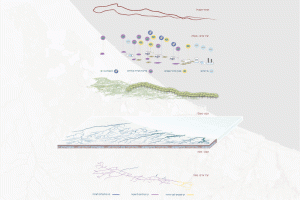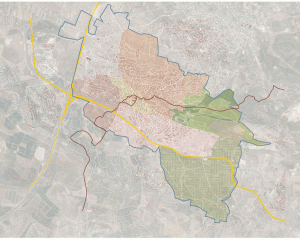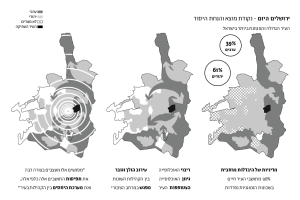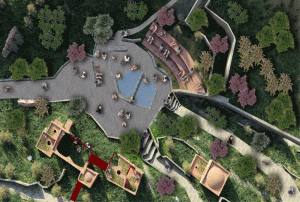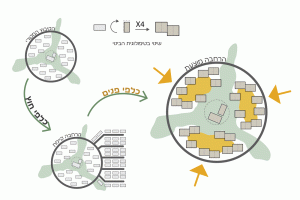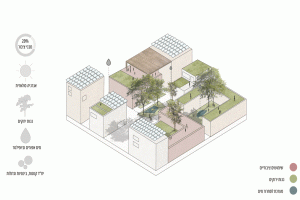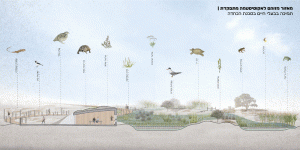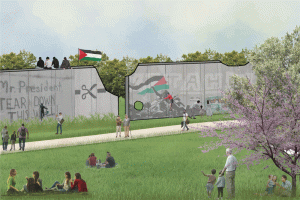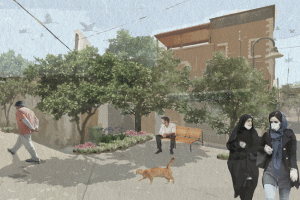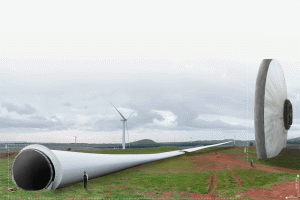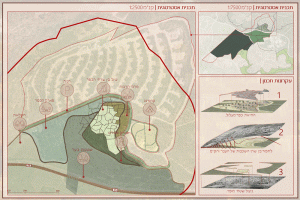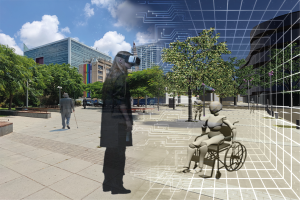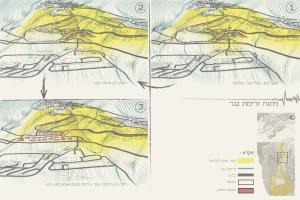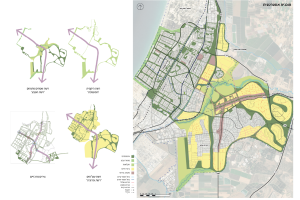In the meanwhile
We are currently in an urban era that demands appropriate planning to accommodate a growing population, the fast pace of daily life, and climate change. In response, many cities worldwide, including Tel Aviv-Jaffa, are promoting numerous development plans for housing, employment, and transportation. These plans raise two central issues that significantly alter the city’s landscape and function. First, there is a reduction in natural scenery, giving way to massive, rigid, and monotonous urban landscapes. Second, development and renewal processes disrupt the urban daily routine and are expected to persist for many years. This raises the question: has the intensive urban planning approach, which prioritizes productivity and rapid outcomes, overlooked the human aspect?
This project proposes a shift from linear planning (planning-execution) to a circular perception, employing a cyclic model for planning and managing daily spaces under development that prioritize human experience. Drawing inspiration from the slow movement and the circular economy, it establishes a sustainable system characterized by preservation, reduction, reuse, recycling, and adaptive, flexible planning.
To enhance the human experience, public space regains its essential role in the urban system as the organizing backbone of the environment. This is accomplished in stages: first by utilizing existing vacant spaces, then connecting to the existing urban fabric, and finally adding new types of public spaces. The new public framework is designed with adaptable spatial dimensions, reuses materials, and incorporates nature-inspired experiences that emphasize changes and natural processes. These elements are complemented by natural components for managing runoff water, mitigating urban heat, and encouraging biodiversity.
From a holistic perspective, the new model promotes slowing down, fostering locality and community, and renewing appreciation for nature. These aspects return human beings to the center of the urban system, reminding them that they are part of a broader ecological system on which they depend, and that depends on them.




